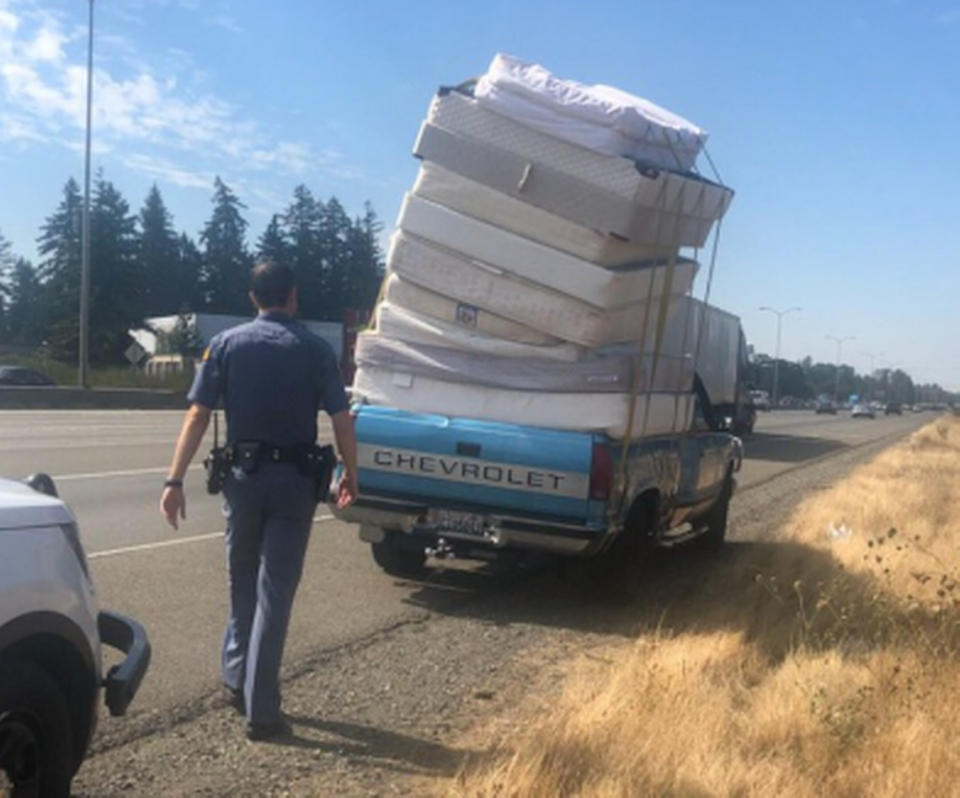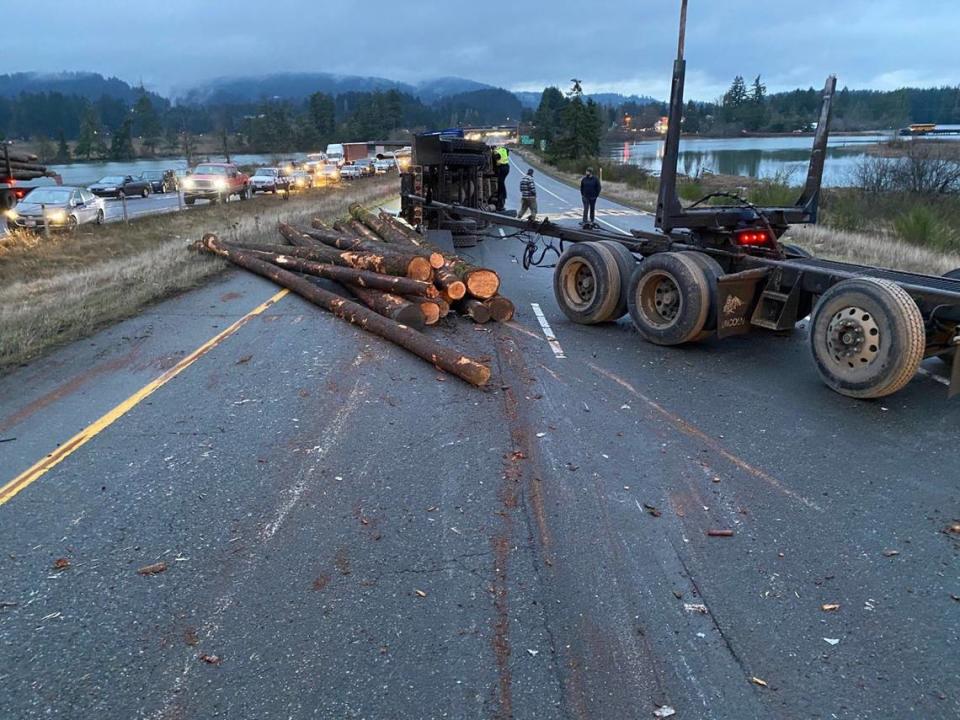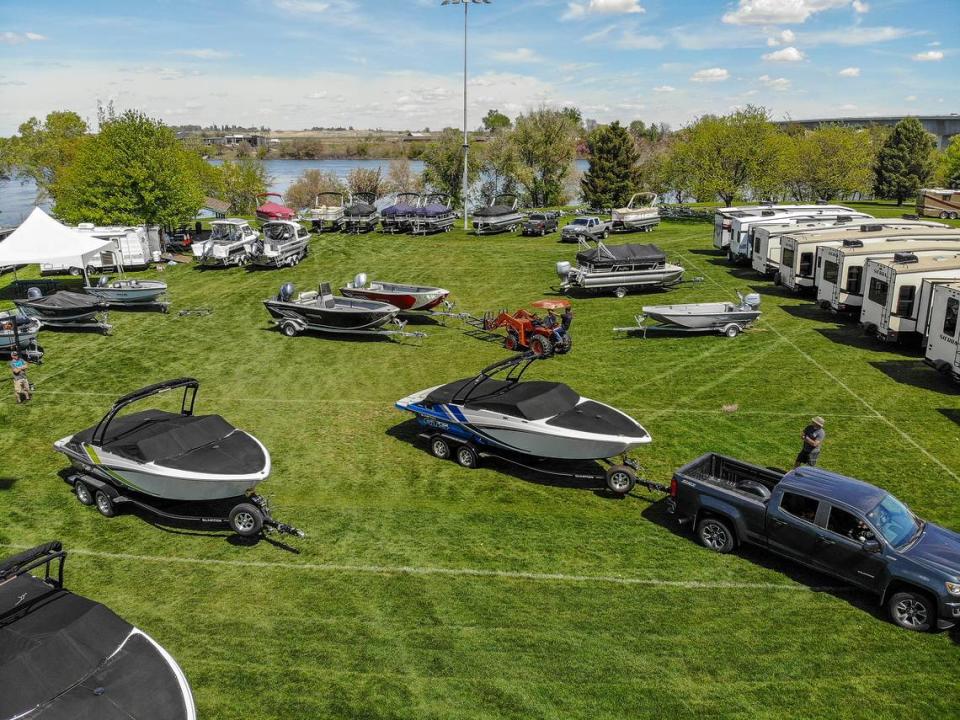If something falls out of your car - or boat - on the freeway, it could cost you thousands
If you’ve ever driven behind someone hauling a trailer full of loose items on the freeway, you know how nerve-wracking the drive can become under these circumstances. Instead of focusing on the road and your destination, you’re worried about the something flying out bouncing off your windshield, or the possibility that a box or piece of cargo will fall off.
At best, it’s a nuisance. At worst, it can seriously injure or even kill others on the road. That’s why it’s illegal to drive with an unsecured load in Washington state.
A mother in Washington has influenced national change regarding secured loads, safety efforts and legislative progress. Robin Abel’s daughter Maria was nearly killed when an unsecured load in front of her flew at her car on I-405 in 2004. She was badly injured and left blind. The following year, Washington passed Maria’s Law, introducing further punishments for drivers with unsecured loads.
Now, driving with an unsecured load in the Evergreen State can result in a misdemeanor offense and a fine of up to $5,000. Individual counties and landfills have implemented their own additional penalties.
Washington secure your load laws
Unsecured loads are credited with causing more than 300 crashes in the state each year and 40% of roadside litter, according to the Washington State Department of Ecology.
The Revised Code of Washington 46.61.655 reads, “No vehicle shall be driven or moved on any public highway unless such vehicle is so constructed or loaded as to prevent any of its load from dropping, sifting, leaking, or otherwise escaping therefrom, except that sand may be dropped for the purpose of securing traction.”

There are three levels of violation, an infraction, a misdemeanor and a gross misdemeanor.
Infraction: Failure to secure load, no damage caused. Fine between $200 and $300.
Misdemeanor: Failure to secure load counts as second-degree criminal negligence when property is damaged. Fine up to $5,000.
Gross misdemeanor: Failure to secure load counts as first-degree criminal negligence when substantial bodily harm is caused. Fine up to $5,000.
You’ll likely also have to pay for any clean-up, repair work or other efforts following property damage.
How to secure your load
Abel created the Secure Your Load campaign, with her methods for security now included in the Washington State Driver Guide and the American Automobile Motor Vehicle Association driver’s guides. These include:
Put lighter things at the bottom, heavier things on top to hold them down.
Use a tarp to cover the load and keep items from falling out or blowing away.
Tie down large items, tarps or other coverings with rope, netting, straps or chains, so the load is directly tied to your vehicle.
Take time to carefully secure the load, strap it down fully and test the security.
Know your vehicle’s limit, don’t overload it.
If you’re hauling fine materials like dirt, sand or gravel that are likely to spill out or move around regardless, you should cover it with a tarp or something similar. If you have six inches of buffer space between the material and the top of the truck bed or trailer, you don’t have to cover it.
In an interview, Trooper Chris Thorson with the Washington State Patrol recommended keeping a tarp and some rope in your vehicle, just in case. If you’re not sure about the security your load has, add a tarp or two and tie it all to your vehicle. You can always use extra straps or rope.
“You can never strap down or tarp a load too much,” said Thorson. “It’s better to overdo it than go under.”

The law regarding secured loads applies to all vehicles, meaning the guidelines apply whether you’re driving a personal or commercial vehicle.
The guidelines also apply to everything you’re hauling. Whether you’re pulling a trailer, a boat or a camper behind you, make sure it’s secured well, along with everything inside.
In other words, it doesn’t matter what you’re hauling or why, it safer to be secured properly.
Securing your boat load
Thorson told McClatchy that most incidents with unsecured loads in the southeast district of the state involve moving and household items. However, as it gets hotter out and more people flock to the Columbia River, there is an increase in incidents involving boats.

More often than not, these incidents involve what’s inside the boat, not the boat itself. It is common to leave towels, life jackets and inner tubes inside the boat as you head back to the dock. But before you get on the road, you need to either move them somewhere else or secure the items inside.
But boats and boat trailers have tires, which can go flat. No matter how secure your load is, you can’t control every factor on the road, and your boat trailer could end up with a flat tire.
What happens then? Thorson says you shouldn’t stop in traffic or pull onto the median. Just slowly, legally get onto the right side shoulder, as far over as you can. Once you’re safely on the side of the road, see if it’s possible to alleviate the situation yourself. If not, call for help.

